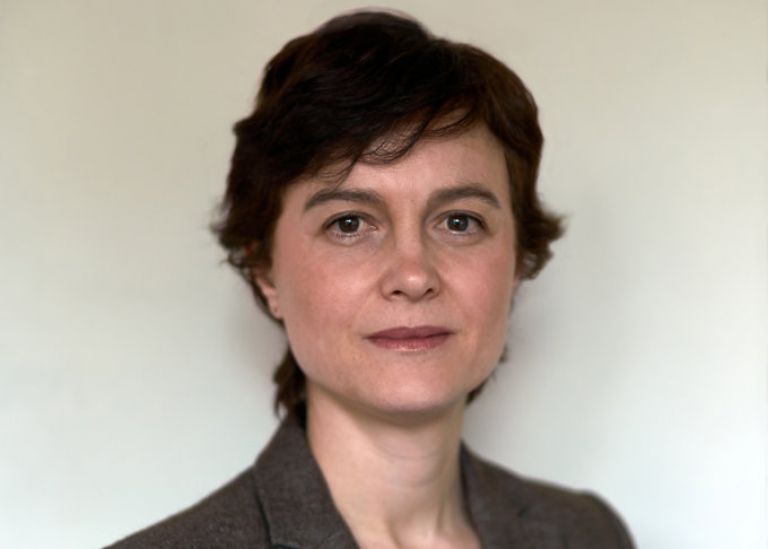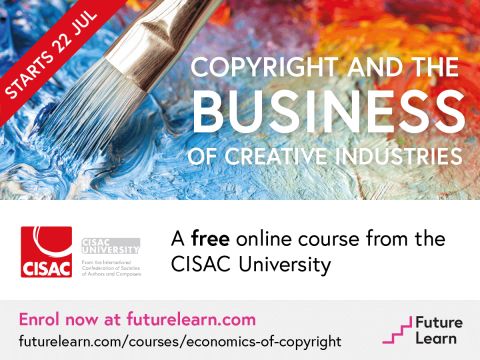Interview with SAA's Director: The film industry and the online market

As a part of the International Confederation of Societies of Authors and Composers (CISAC) open online course (MOOC), Cécile Despringre, SAA Executive Director was interviewed about creators’ remuneration, collective rights management, the film industry and the online market.
Read the interview below, and more about the CISAC online course on "Copyright and the Business of Creative Industries" here. The course is open for enrolment and starts on Monday 22 July.
1) In the film industry, there is traditionally a clear difference in the activities, rights and responsibilities of producers, distributors and broadcasters. Do you think this same model applies to the online business? In which of these three groups would you include services such as Netflix?
The traditional roles of producers, distributors and broadcasters are blurred in the online business, but this is not a new trend. Off-line companies also have this option when they are developing their activity. It has to do with controlling the value chain. For a distribution company or a broadcaster, producing their own content internally has always been considered a good way of securing the content they want. The difference with Netflix though is that, beyond producing, it is creating a fully exclusive distribution environment. There is no other way of seeing their films than on Netflix. Traditional media companies maximise their investment on all possible channels, from theatrical release to DVDs, while Netflix is only investing in its platform and refusing other distribution opportunities. This exclusivity can be problematic for creators who like to have their films available on the big screen or would like to reach a diversified audience.
2) How do online technologies impact operations and the mission of a creators’ organisation?
Online technologies combined with standardised identifiers of works, like ISAN (International Standard Audiovisual Number), are an opportunity to streamline and automate some of the activities of creators’ organisations like collective management organisations (CMOs). However, it is a long-term investment at a time when technologies are changing at a rapid pace. It is really cost-efficient when all users of audiovisual works use these identifiers, which is unfortunately not the case today.
The priority for SAA member CMOs is to include new business models in the collective rights management ecosystem so that audiovisual authors receive royalties when their works are viewed on video-on-demand platforms. Several audiovisual authors’ CMOs already collect and distribute royalties for video-on-demand in Europe, but that’s not enough. We hope that the implementation of the Directive on Copyright in the Digital Single Market will help CMOs address loopholes and develop a healthy and level digital playing field to benefit authors and society as a whole.
3) In the Internet of things, what can creators’ organisations do to assist their members in getting a fair share of the revenue produced by these new business models?
It is urgent that all legislations recognise that audiovisual authors are entitled to a fair and proportional share of the revenues generated by the exploitation of their works, including by these new business models. There are still too many countries where audiovisual authors are just paid a flat fee at the production stage and receive no additional payment for the exploitation of their works or are limited to just a few exploitations. By the way, Netflix applies this flat-fee model when producing outside the US, unless legislation in place prevents it from doing so. CMOs need their authors’ mandate or the law to negotiate with the users of their works, to collect and distribute the remuneration their members are entitled to. Audiovisual authors’ CMOs are not as established as music CMOs but they are developing their activities and are becoming an essential partner of the audiovisual industry.
4) What would be your advice to screenwriters and film directors embarking on a career, at a time when film-streaming services are gaining more and more subscribers and competing with traditional means of communication?
I would advise them to be open to the new world of opportunities, with more players interested in producing content. However, it is more important than ever for filmmakers to know their rights and to become members of a CMO who will protect them and ensure they get their money when their works are exploited. When an author’s reputation is not established yet, it’s a difficult world and a struggle convincing people that their project and vision will find an audience. The industrialisation of production is growing in many countries, offering a full range of working opportunities to screenwriters and directors in different genres, but developing personal projects will continue to be a challenge.
***
Read more about the online course here.

